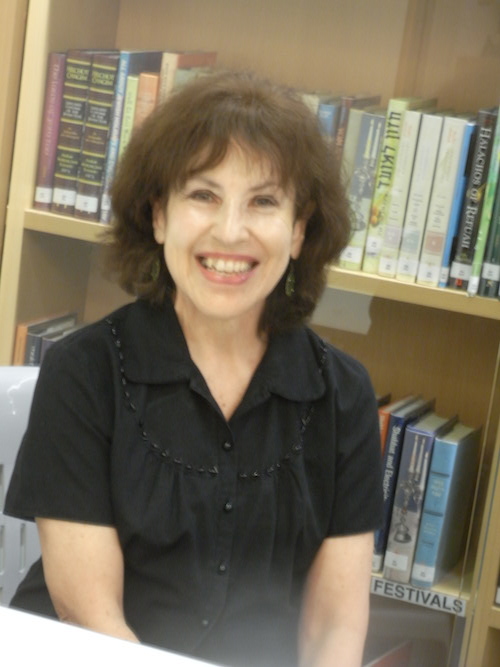Bashert - Or How I Met My Wife - President's Message 05/08
05/08/2016 12:16:04 AM
| Author | |
| Date Added | |
| Automatically create summary | |
| Summary |
One of the harder theological doctrines is that of free will: we believe that God is all-knowing and that nothing happens by chance yet at the same time we believe that we have free will, indeed, that we are responsible for all our actions. There is a similar conundrum with the concept of “bashert,” the Yiddish word that means “destiny.” It is most frequently used in the context of a person’s divinely foreordained spouse or soulmate – especially when one talks of matches made in heaven.
The word comes from the German “bescheren,” but that term itself can have two different meanings. (1) It can mean “to give, to bestow – usually as a gift” – for example, “beschert” is often used to mean Christmas and New Year gifts, thought to be divine gifts; in English this is like your “share” or portion. (2) It can also mean “cut, clip” (similar to the English word “shear” – think about the “shears of fate”) – and indicating something determined and predestined.
For many decades before he started the JLI courses, Rabbi Milecki taught a weekly Gemorrah shiur and I was one of his regular students. The last tractate that we studied was Sotah where, on the very first page (2a) Rabbi Yehudah is quoted as saying in the name of Rav that at the very moment of conception (it is called 40 days before the formation of an embryo, but that is what it means) “a Heavenly voice issues forth and proclaims, ‘The daughter of So-and-so [is destined] for So-and-so; this particular house [is destined] for So-and-so; this particular field [is destined] for So-and-so.’” Different commentators have different approaches to reconciling how we can say that one’s wife is determined at the time of conception when we say, on the other hand, that the selection of one’s spouse is contingent on his conduct (I am quoting the Artscroll notes here).
Let me tell you my story. A few weeks ago I wrote to you that my father died when I was still in high school. I attended Columbia College in New York, graduating with a BA in history. I was a good student and was awarded a scholarship to study at Oxford University. I arrived in Oxford in early October 1973. Oxford is a city of about 100,000 persons (there was a big automotive plant nearby) with colleges all over the downtown area. There was an Orthodox synagogue, but it was closed for major renovations; I found out High Holiday services were being held in one of the university halls. A few days before Yom Kippur, I walked to that hall to make sure that I knew my way and saw a few other students there doing the same thing. I came on Kol Nidre and found it hard to follow, as I did not have a machzor (in New York the synagogues usually have machzors); no one spoke to me. The next day, I managed to borrow a machzor after an hour or so, but still no one spoke to me. A while later I saw one of the students who I had seen checking out the hall earlier – no one was talking to him either – and went over and introduced myself. He was an Australian, studying computer science at Wolfson, one of the graduate colleges (I was at Queen’s). We kept in touch, became friends and did things together. He went back to Australia at the end of a year, I stayed on at Oxford and we corresponded with one another. I completed my degree (it was a BA/MA in politics, philosophy and economics) and moved to California to study for an MBA at Stanford. Soon after I started, I got a letter from my Australian friend, saying that his cousin was getting married in Miami and that his sister was travelling separately, that he had given her my contact details and she might look me up. She did – it was November 1975 and we got married in Adelaide the following June. I thought (and still think) that it was love at first sight –and that it was bashert – in any event, it was the best and most important thing that happened in my life. I sometimes think that God rewarded me because I went to pray on Yom Kippur and that I befriended another stranger (if only the English Jews were friendlier!).
Mon, 25 August 2025
1 Elul 5785
Contact Us:
Today's Calendar
| Rosh Chodesh Elul |
| Shacharis : 6:30am |
: 9:10am |
: 5:30pm |
| Mincha : 5:35pm |
: 5:57pm |
This week's Torah portion is Parshas Shoftim
| Shabbos, Aug 30 |
Candle Lighting
| Friday, Aug 29, 5:17pm |
Havdalah
| Motzei Shabbos, Aug 30, 6:13pm |
Rosh Chodesh Elul
| Monday, Aug 25 |
Full Calendar Here
Happy Jewish Birthday!
Monday 1 Elul
- Toby Levine-Evans
We wish "Long Life" to:
Monday 1 Elul
- Elaine Bolon for father, Gerald Sender
Wednesday 3 Elul
- Cecille Levin for husband, Gerald Philip Levin
- Gary Weiss for uncle, Berl Yisosko Dov Frankl
Halachik Times
| Alos Hashachar | 5:09am |
| Earliest Tallis | 5:38am |
| Netz (Sunrise) | 6:23am |
| Latest Shema | 9:10am |
| Zman Tefillah | 10:06am |
| Chatzos (Midday) | 11:58am |
| Mincha Gedola | 12:25pm |
| Mincha Ketana | 3:13pm |
| Plag HaMincha | 4:22pm |
| Shkiah (Sunset) | 5:32pm |
| Tzais Hakochavim | 5:57pm |
| More >> | |
South Head Catering

South Head Catering is well and truly on the map! What began as a small initiative to provide a little variety and some new options by the South Head Ladies Guild has turned into a highly successful venture with people absolutely raving about the service and products on offer.
Want to know more? Want to help out and volunteer? Visit our Catering page.
Mikvah Aziza
Mikvah Aziza at 662 Old South Head Road, Rose Bay has re-opened.
Please click here for details:
South Head Library
 Welcome to the Sandra Bransky Library & Youth Synagogue, located on the first floor and including the Beit Midrash. Drop in any Sunday morning between 9 - 11am.
Welcome to the Sandra Bransky Library & Youth Synagogue, located on the first floor and including the Beit Midrash. Drop in any Sunday morning between 9 - 11am.
I look forward to helping you get the most out of our beautiful world of books at South Head.
Sylvia Tuback, South Head Libarian
southheadlibrary@gmail.com
SHOFTIM
Rose Bay, NSW 2029
(02) 9371 7300
Privacy Settings | Privacy Policy | Member Terms
©2025 All rights reserved. Find out more about ShulCloud



